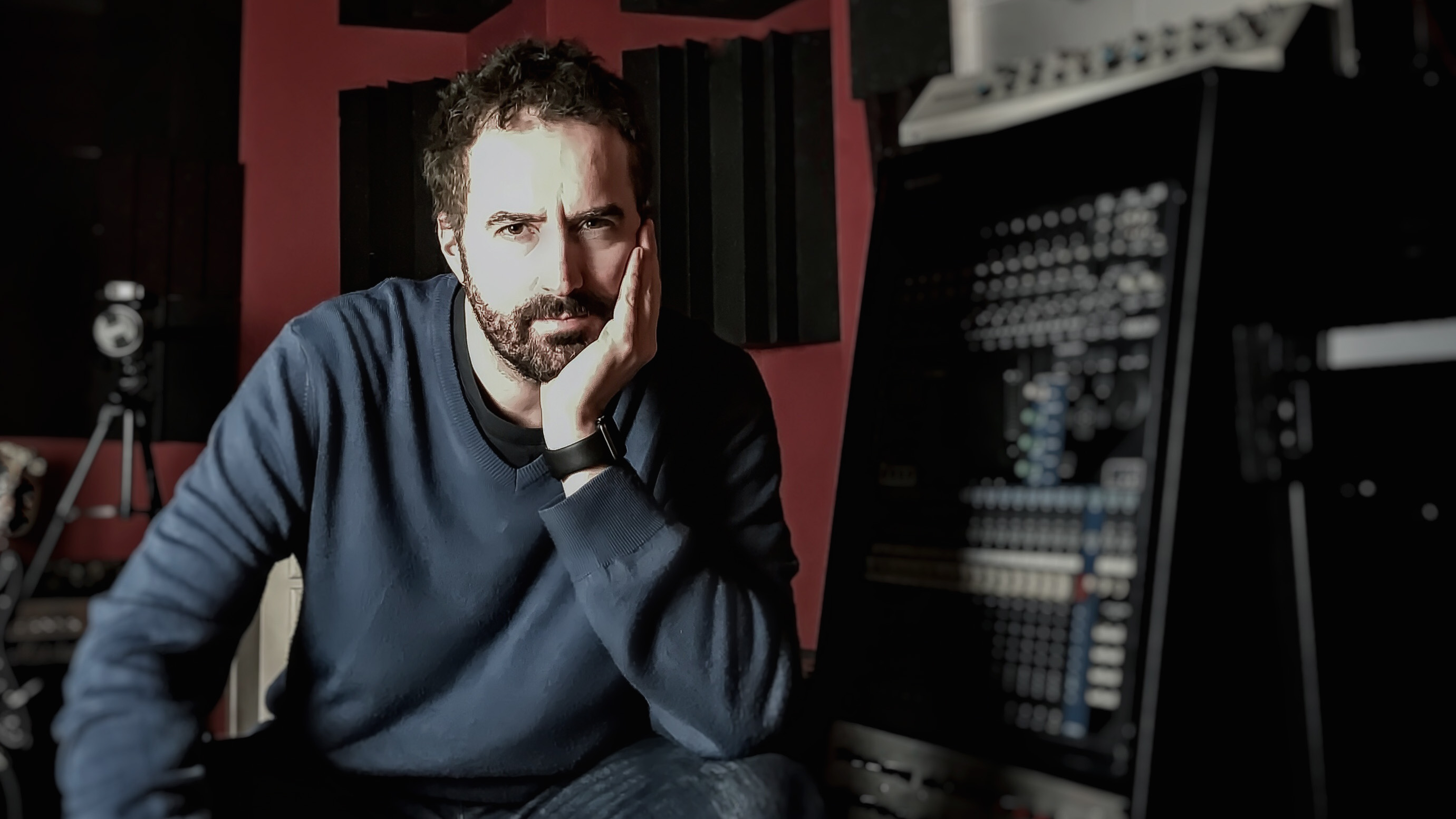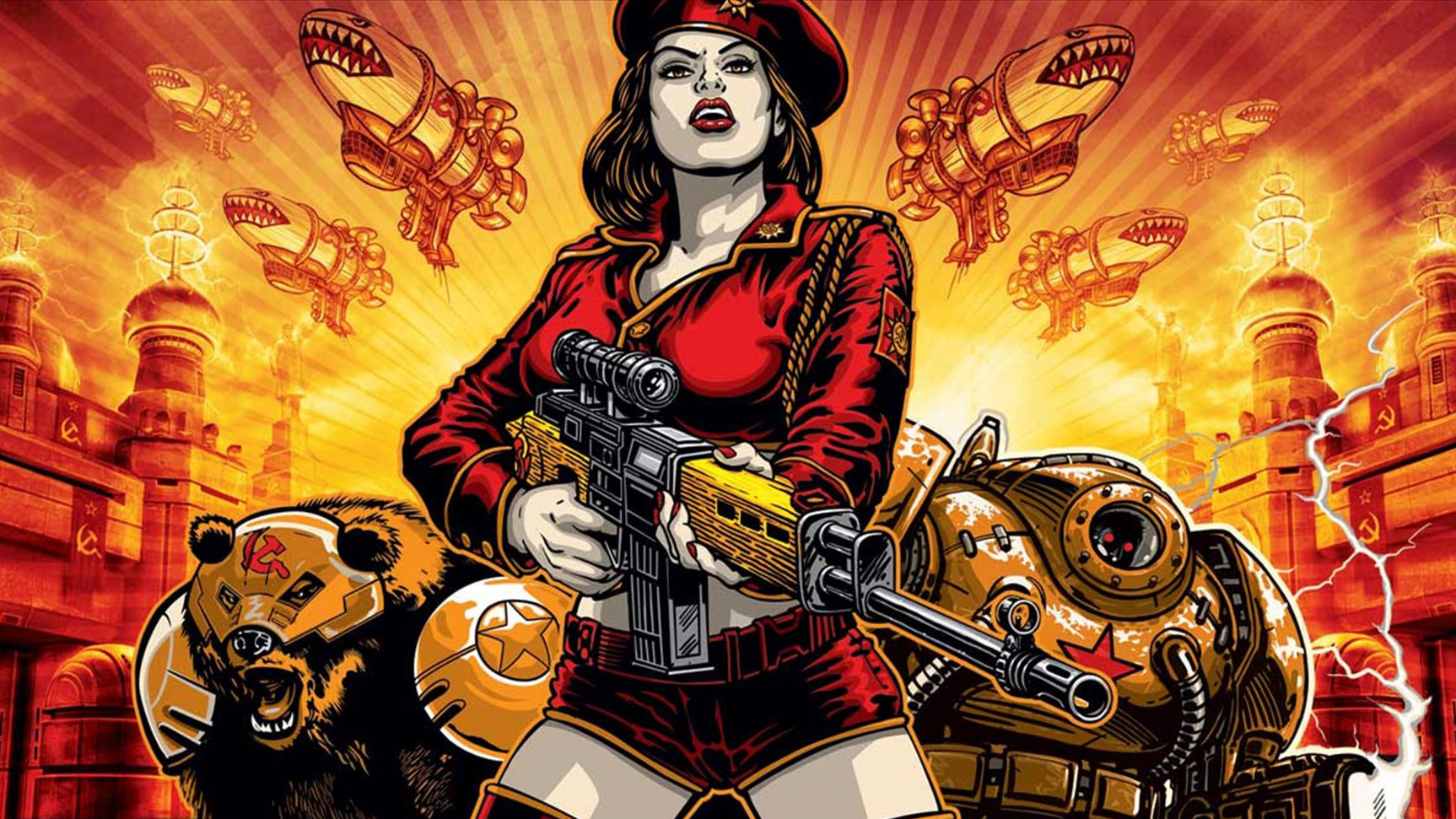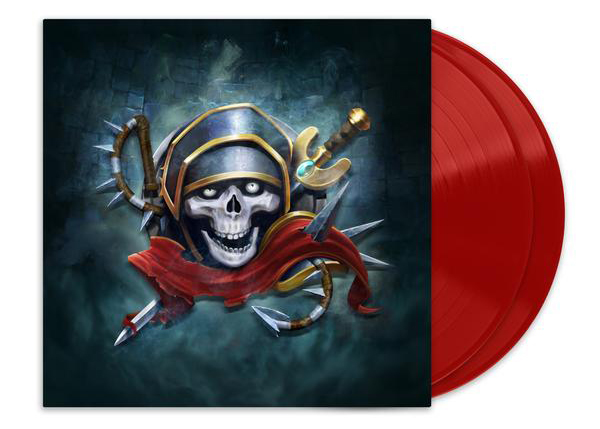So you want to be a... videogames composer: from Theme Park World to Evil Genius, James Hannigan's career tips
Tips on breaking into music professionally, from people at the top of their field

Want all the hottest music and gear news, reviews, deals, features and more, direct to your inbox? Sign up here.
You are now subscribed
Your newsletter sign-up was successful
In the first of a new series in which we pick the brains of established professionals in a range of fields on how to get a start and build a career in music, we talked to James Hannigan.
He's a multi-award winning composer and music producer, known in part for his contributions to the Harry Potter, Dead Space, Runescape, EA Sports, Transformers, Lord of the Rings, Theme Park and Warhammer videogame series.
Hannigan is also the founder of influential conference Screen Music Connect and co-founder of Game Music Connect events, both of which have garnered support from BAFTA, PRS, Sony, Music Week, The Ivors Academy, and others.
What was your musical background prior to getting involved with video game music?
I’ve been making music for most of my life. I was lucky to have piano lessons from an early age, but mostly I’d spend time improvising at the piano, jamming with friends or multi-tracking using tape decks.
I sent a demo tape to EA in 1993 and they offered me a job as in-house composer
In my early twenties (which is a seriously long time ago now) I started writing bits and pieces for TV and putting out library music.
How did you get your first games work?
Want all the hottest music and gear news, reviews, deals, features and more, direct to your inbox? Sign up here.
I grew up with the first consoles, and the emerging musical possibilities of games fascinated me. I came from a background of studio recording but I found the uniqueness of games music interesting.
I sent a demo tape to EA in 1993 and they offered me a job as in-house composer, and I was based there for a few years before going freelance. It was a ‘cyberpunk’ electronica track that landed me that gig, which is ironic given that most of my output over the years has been orchestral.
As a composer, you can become pigeonholed and you tend to get asked to do more of what you’ve become known for already. That can be helpful at times, but also makes it harder to branch out into other genres.
Not long after leaving EA, I hopped onto a plane to Texas to meet audio director, Martin Galway – a SID chip legend - and one of my earliest freelance projects was the aptly named Freelancer. The year before, I’d worked on Privateer: The Darkening, loosely based in the Wing Commander universe.
When starting out, you have to be proactive in order to establish yourself and to build working relationships. Sending reels usually isn’t enough - especially now I’m sure, as there are just too many out there.
Context and how music is curated and brought to the attention of others is key here. It’s not just about talent and quality, I’m sad to say.

How does composing music for games differ to composing for film, or television?
As someone who has worked in multiple industries, it differs not as much as it ought to. These days, music production methods do largely overlap, but music can differ greatly in terms of how it functions and supports any given experience, and how it relates to sound in general. Even in games it varies a lot.
You may have some games that are particularly cinematic or linear with a lot of exposition, third person action or cut scenes, or you may have more ‘personal’ first-person games or those offering complete ‘narrative control’ to players, needing a more flexible approach to how music gets dissected and played back.
For me though, the question to ask is: what is the meaning of this music and what is it trying to convey? - and go from there.
Presumably, the music needs to be dynamic in many games. How does that work?
My earliest foray into interactive music came with EA Sports games and the BAFTA winning Bullfrog title Theme Park World in 1999, in which music built up in density as the player’s park became busier.
Elixir Studios’ Republic: The Revolution (2003) had a fairly sophisticated purpose-built music system, some time before terms like ‘horizontal and vertical’ composing and ‘stemming’ were banded around, although that is essentially what was going on.
It was nominated for a BAFTA, but I think it may have escaped many that the music was even interactive, as it was pretty seamless. You can check out how the music flowed in this video (below).
Interestingly, the lead designer and head of Elixir Studios, Demis Hassabis, went on to found Google DeepMind - which I think will tell you a lot about the ingenuity and pioneering spirit of that era.
What is the common process you go through when making a game's soundtrack? How are you briefed, what milestones do you go through, and what deliverables are common?
Having worked on tens of ‘AAA’ games, I can honestly say it seems different almost every time, unless you’re working with people you know particularly well, in which case there can be a shorthand.
There are instances when you get to determine how, why and when your music will be heard, and there are times when you are asked to create music in a detached way without even getting to see the game.
It’s ideal for music to be conceived of as an integral part of the game’s design, and not be seen as an afterthought or as mere sonic wallpaper! I hope those days are long gone.
Do you need to be able to read music in order to do the job?
It depends on how you write, record and produce music. It helps if you need to create scores and you record musicians for your productions (e.g. preparing parts for an orchestra). But, as we know, there are top flight film composers who barely read music, so it clearly isn’t always necessary, especially if you have a team around you.
Not all projects allow for that, so of course it’s a bonus to notate and read music. If, however, your music is created entirely in the audio and MIDI domain then of course reading music isn’t necessary for that.
Gear-wise, what are the essential tools for game music composers?
The best tools are the ones you’re used to. I forget who first said that, but I think it holds true when it comes to the basics of music production, sound creation and editing.
Technology and tools are a means to an end, not an end in themselves, and I can’t see why it matters what you use to get results, so long as you get them. Having said that, I gather it would be helpful for many games composers today to look at tools such as Wwise in order to better integrate their music within games.
What are some of the common mistakes you see people make when trying to gain work in the industry?
I would suggest not doing things for free with the expectation of gaining more work through credits
I would suggest not doing things for free with the expectation of gaining more work through credits. If fortunate, it may work for some occasionally, but it also sends out the message you don’t value your own work and may set a precedent unhelpful to everyone.
Credits may get you some recognition but won’t necessarily propel you in the way you expect they will, so do be careful. There are plenty of beloved composers who are out of work. Frankly, there’s some luck – or lack of - involved at every stage of a career.
Working relationships and creative partnerships can be key, as many are loathe to keep building new ones. It’s just human nature. Once they have a composer they like and enjoy working with, many designers and audio directors like to maintain a relationship with them, naturally.
You see it in film with director/composer partnerships like Spielberg and Williams, Burton and Elfman, Hitchcock and Herrmann. Why would those directors go out looking for anyone else? So, do try to build those relationships and track your career with those people/teams.
In terms of gear, I’d suggest using your ears first (and what’s between them) rather than always looking to the future. I think it’s a myth that things will be different when you finally obtain X, Y, and Z for the studio, or certain credits.
Don’t rely on show reels. There are simply too many around and it’s probably a myth that the ‘cream rises to the top’. The majority of people are not aching to hear our music, much as that may bruise our collective egos.
Mostly, audiences will take an interest in music because of the context they hear it in. Success is often about perceptions and the image of an artist as well as the music they make, for better or for worse. Being heard in the ‘right’ project at the right time can have a validating effect, no doubt.
Finally, which of your projects are you most proud of and why?
When it comes to ‘traditional’ composition, I’m fairly proud of my Harry Potter game scores, and I had a lot of fun working on new orchestral music for RuneScape fairly recently. When it comes to interactive music, probably Republic: The Revolution and Theme Park World.
I think my catchiest themes may be the Soviet March from Command and Conquer: Red Alert 3 (below) and perhaps the Evil Genius theme! (above)
With thanks to Laced Records, who enabled this series of composer Q&As, featuring some of the most famous and unique talents in the increasingly popular world of game soundtracks.

The Laced Records label has worked with a range of partners — including Bandai Namco, Bethesda, Capcom, SEGA, and Square-Enix — to release soundtracks for handcrafted indies, classic gaming series and AAA blockbusters. The Laced Records label is part of Keywords Studios, a technical and creative services provider to the videogames industry, with 50+ operational studios across 21 countries and four continents.


MusicRadar is the number one website for music-makers of all kinds, be they guitarists, drummers, keyboard players, DJs or producers...
- GEAR: We help musicians find the best gear with top-ranking gear round-ups and high-quality, authoritative reviews by a wide team of highly experienced experts.
- TIPS: We also provide tuition, from bite-sized tips to advanced work-outs and guidance from recognised musicians and stars.
- STARS: We talk to musicians and stars about their creative processes, and the nuts and bolts of their gear and technique. We give fans an insight into the craft of music-making that no other music website can.
